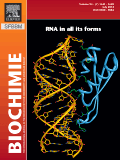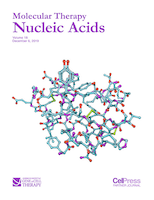
LIPIDS
Scope & Guideline
Exploring the intricate roles of lipids in biology.
Introduction
Aims and Scopes
- Biological Roles of Lipids:
Research on the physiological and pathological roles of various lipids, including their involvement in cell membrane structure, signaling pathways, and metabolic processes. - Lipid-Membrane Interactions:
Investigations into how lipids interact with biological membranes, including studies on lipid bilayer dynamics, membrane fluidity, and the effects of different lipid compositions. - Lipidomics and Metabolism:
Comprehensive analyses of lipid profiles in biological samples, exploring lipid metabolism and its implications in health and disease, particularly in metabolic disorders and cancer. - Therapeutic Applications of Lipids:
Development and evaluation of lipid-based drug delivery systems, including liposomes and nanoparticles, aimed at enhancing drug solubility, stability, and bioavailability. - Innovative Analytical Techniques:
Utilization of advanced analytical methods such as NMR, mass spectrometry, and synchrotron-based techniques to characterize lipids and their interactions. - Synthetic and Natural Lipid Derivatives:
Synthesis and characterization of novel lipid compounds, including bioactive lipids and their potential applications in medicine and biotechnology.
Trending and Emerging
- Nanotechnology in Lipid Delivery Systems:
There is a growing emphasis on the development of lipid-based nanocarriers for drug delivery, highlighting innovative formulations that enhance therapeutic efficacy and targeting. - Lipid-Mediated Signaling Pathways:
Research exploring the roles of lipids in cellular signaling, particularly in the context of diseases such as cancer and cardiovascular conditions, has become increasingly prominent. - Lipidomic Profiling and Precision Medicine:
The integration of lipidomics into precision medicine is gaining attention, with studies focusing on lipid biomarkers for disease diagnosis and treatment response. - Interdisciplinary Approaches to Lipid Research:
Emerging interdisciplinary collaborations are evident, combining lipid science with fields such as nanotechnology, pharmacology, and molecular biology to tackle complex biological questions. - Sphingolipid Research:
An increase in studies focusing on sphingolipids and their diverse roles in cell signaling and disease mechanisms, particularly in neurodegenerative and metabolic disorders.
Declining or Waning
- Traditional Lipid Extraction Methods:
Research focused on conventional lipid extraction techniques has decreased, likely due to the emergence of more efficient and innovative methods that yield higher purity and better characterization of lipid samples. - Static Membrane Studies:
Studies involving static models of membrane interactions have waned, as researchers increasingly adopt dynamic and in vivo models to better mimic physiological conditions. - Basic Lipid Structure Studies:
There is a noticeable reduction in publications centered solely around the basic structural characterization of lipids, as the field moves towards understanding functional and interactive aspects of lipids. - Lipid Studies in Non-Biological Contexts:
Research exploring the properties of lipids in non-biological or synthetic contexts is less prevalent, possibly due to a shift towards applications with direct biological relevance.
Similar Journals

BIOCHIMIE
Unveiling the Science Behind Life's ComplexitiesWelcome to BIOCHIMIE, a prestigious journal dedicated to advancing the field of biochemistry and related areas of medicine. Published by Elsevier France - Editions Scientifiques Medicales Elsevier, this journal has been a cornerstone of scientific communication since its inception in 1971 and will continue to contribute essential research until 2024. With an impressive impact factor and categorized in Q2 for Biochemistry and Q1 for Miscellaneous Medicine, BIOCHIMIE ranks among the top quartiles in its fields, underscoring its significance and influence in the scientific community. Targeting a wide audience of researchers, professionals, and students, the journal publishes high-quality articles that explore innovative research and developments in biochemistry, genetics, and molecular biology, reflected in its Scopus ranking of 136 out of 438 in the biochemistry category. Despite its traditional publication format, the journal remains committed to promoting impactful research that drives the future of biochemistry and molecular medicine, ensuring that readers have access to critical insights that foster advancements in health and science.

Lipids in Health and Disease
Exploring the vital role of lipids in human health.Lipids in Health and Disease, published by BMC, stands as a leading open-access journal dedicated to advancing the understanding of lipid metabolism and its implications for health and disease. Since its inception in 2002, this journal has fostered accessibility to cutting-edge research, ensuring that knowledge in this vital field is disseminated widely to researchers, clinicians, and students worldwide. With a commendable Q1 ranking in multiple categories including Clinical Biochemistry and Endocrinology, Diabetes and Metabolism, it appeals to a diverse readership, positioning itself at the forefront of research in biochemistry and medicine. It boasts an impressive Scopus rank, where it excels in areas such as Endocrinology, Diabetes and Metabolism and Clinical Biochemistry, making it an essential resource for those looking to deepen their understanding of lipid biology and its clinical applications. Researchers can share and access findings that have significant implications for public health and disease prevention, emphasizing the journal's commitment to fostering innovation and collaboration in the scientific community.

Journal of Atherosclerosis and Thrombosis
Leading the charge in cardiovascular research excellence.Journal of Atherosclerosis and Thrombosis is a leading academic publication dedicated to advancing research in the fields of cardiovascular medicine, biochemistry, and internal medicine. Published by the Japan Atherosclerosis Society, this esteemed journal operates from its headquarters in Tokyo, Japan, and has been a vital resource in its area since its inception in 1994. With its robust impact in Cardiology and Cardiovascular Medicine, ranking in the top quartile (Q1) as of 2023, and a commendable standing in Internal Medicine and Biochemistry, the journal fosters an environment of innovation and discovery, showcasing significant studies and advancements that shape clinical practices and therapeutic approaches. Though not an open-access publication, it offers a wealth of insights to researchers, professionals, and students seeking to deepen their understanding of atherosclerosis and thrombosis. By continually featuring high-quality articles, the Journal of Atherosclerosis and Thrombosis plays an essential role in bridging the gap between research and practice, facilitating critical conversations that influence the future of cardiovascular health.

Journal of Clinical Lipidology
Unveiling the complexities of lipid metabolism.Journal of Clinical Lipidology, published by Elsevier Science Inc, is a leading platform dedicated to advancing the understanding of lipidology and its impact on cardiovascular health. With an ISSN of 1933-2874 and E-ISSN 1876-4789, this esteemed journal boasts a remarkable Q1 ranking in key medical categories, including Cardiology and Cardiovascular Medicine, Internal Medicine, and Nutrition and Dietetics, solidifying its position as a vital resource for the latest research and clinical practices. This journal not only serves as a repository for groundbreaking studies but also provides insights into complex interactions between lipid metabolism and chronic diseases, including diabetes and obesity. Researchers, practitioners, and students will find a wealth of carefully vetted articles that drive innovation and improve patient outcomes in lipid management. Although it does not currently offer open access, the Journal of Clinical Lipidology ensures high visibility through rigorous peer review and a commitment to quality, making it an essential read for anyone invested in the future of lipidology.

International Journal of Pharmaceutics-X
Elevating knowledge in pharmacology and toxicology.International Journal of Pharmaceutics-X is a premier open access journal published by Elsevier, dedicated to advancing knowledge and research in the field of pharmaceutical sciences. Launched in 2019, this journal has quickly ascended to the Q1 category in the 2023 Category Quartiles, reflecting its high impact and the quality of research it promotes. With a current Scopus ranking of #49 out of 183 in the Pharmacology, Toxicology and Pharmaceutics category, this journal occupies the 73rd percentile, showcasing its significant influence within the scholarly community. Emphasizing innovative research and novel applications, the International Journal of Pharmaceutics-X offers a platform for researchers, professionals, and students to disseminate their findings, making crucial contributions to the global pharmaceutical landscape. The journal is based in the Netherlands, presenting a vibrant hub for scientific discourse and collaboration in a rapidly evolving field.

PHYCOLOGICAL RESEARCH
Fostering insights in the dynamic field of aquatic sciences.PHYCOLOGICAL RESEARCH is a leading journal in the field of aquatic and plant sciences, published by Wiley, recognized for its commitment to advancing knowledge in the study of algae and their ecological significance. With a diverse scope encompassing ecological interactions, evolutionary behaviors, and physiological processes, PHYCOLOGICAL RESEARCH aims to provide a platform for researchers to disseminate innovative findings and insights pertinent to both agricultural and biological sciences. The journal's impressive rankings—placing it in the 74th percentile within Agricultural and Biological Sciences (miscellaneous) and holding a Q2 category in key fields—underscore its impact and importance in academia. Despite not being open access, the journal ensures broad distribution and visibility through its dedicated readership. Since its inception in 1995, PHYCOLOGICAL RESEARCH has continuously evolved, shaping and influencing the direction of research in phycology and related disciplines, making it an essential resource for students, professionals, and researchers alike.

Molecular Therapy Nucleic Acids
Catalyzing scientific excellence in molecular medicine.Molecular Therapy Nucleic Acids is a premier open-access journal published by CELL PRESS, dedicated to advancing the field of molecular medicine through the innovative application of nucleic acid-based therapies. Since its inception in 2012, this journal has become an essential resource for researchers and professionals in drug discovery and molecular medicine, reflected in its status as a Q1 journal in both categories for 2023. With a notable impact factor and high rankings in Scopus, including #8 out of 157 in Drug Discovery and #16 out of 178 in Molecular Medicine, it serves to disseminate groundbreaking research and foster collaborations among scientists worldwide. The journal's comprehensive scope encompasses a wide variety of topics, including gene therapy, RNA interference, and CRISPR technology, ensuring that it remains at the forefront of scientific excellence. With open access availability, Molecular Therapy Nucleic Acids actively promotes the widespread dissemination of knowledge, making its crucial insights accessible to students, researchers, and industry professionals alike.

AAPS PHARMSCITECH
Exploring the Frontiers of Drug Discovery and TechnologyAAPS PHARMSCITECH is a prestigious peer-reviewed journal published by Springer, focusing on the dynamic field of pharmaceutical sciences and technology. With an ISSN of 1530-9932, it provides a vital platform for disseminating cutting-edge research that spans key areas including drug discovery, pharmacology, toxicology, and ecological impacts of pharmaceuticals. The journal is recognized for its rigorous scientific contributions, currently holding a commendable Q2 quartile ranking across several relevant categories, including Agronomy and Crop Science, Aquatic Science, and Medicine in 2023. Notably, it ranks 43rd out of 183 in the Scopus Pharmacology, Toxicology, and Pharmaceutics category, placing it in the 76th percentile of its field. Aiming to foster innovation and collaboration among researchers, professionals, and students, AAPS PHARMSCITECH is committed to advancing scientific knowledge and addressing contemporary challenges in pharmaceutical sciences. The journal offers various access options to ensure wide dissemination of research findings, making it an essential resource for those dedicated to enhancing public health through pharmaceutical advancements.

JOURNAL OF THE AMERICAN OIL CHEMISTS SOCIETY
Innovating Solutions for a Greener FutureJOURNAL OF THE AMERICAN OIL CHEMISTS SOCIETY, published by WILEY, is a premier academic journal that has been at the forefront of research in the fields of chemical engineering and organic chemistry since its inception in 1947. With an ISSN of 0003-021X and an E-ISSN of 1558-9331, this journal serves as an invaluable resource for researchers and professionals interested in the latest advancements and methodologies in oil chemistry and related disciplines. The journal holds impressive rankings, placing in the Q2 category for Chemical Engineering and Q3 for Organic Chemistry, reflecting its influential position in the academic community as evidenced by its Scopus rankings. While it follows a subscription model, the journal remains committed to disseminating quality research, aiming to enhance understanding and application within the chemical science sector. Researchers, professionals, and students engaged in oil chemistry and engineering will find JOURNAL OF THE AMERICAN OIL CHEMISTS SOCIETY crucial for staying abreast of developments that shape this dynamic field, as it continues to publish cutting-edge research through to 2024 and beyond.

BIOCHIMICA ET BIOPHYSICA ACTA-MOLECULAR AND CELL BIOLOGY OF LIPIDS
Championing Excellence in Lipid BiologyBIOCHIMICA ET BIOPHYSICA ACTA-MOLECULAR AND CELL BIOLOGY OF LIPIDS, published by Elsevier, is a leading academic journal that focuses on advancing the field of lipid biology. With an ISSN of 1388-1981 and an E-ISSN of 1879-2618, this journal has established itself as an essential resource for researchers, professionals, and students interested in cell and molecular biology, particularly regarding lipid interactions and functions. The journal boasts an impressive impact factor, standing in the top quartiles of its categories—Q1 in Molecular Biology and Q2 in Cell Biology. As part of the vibrant academic landscape of the Netherlands, it supports both traditional and open access publication models, ensuring that vital research is accessible to a global audience. The converged years from 1998 to 2025 mark its sustained commitment to quality and relevance in the fast-evolving field of lipid research. With a strong ranking in Scopus and a percentile in the 80th range in both Molecular Biology and Cell Biology, this journal continues to be a pivotal platform for scholarly communication and innovation in lipid-related research.